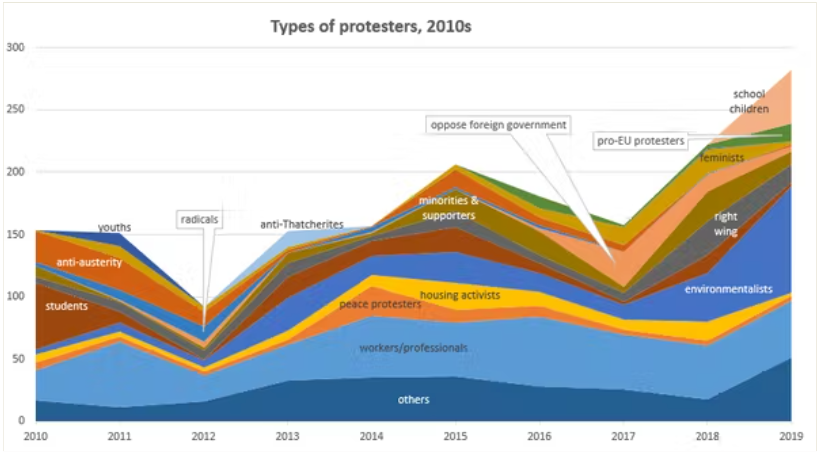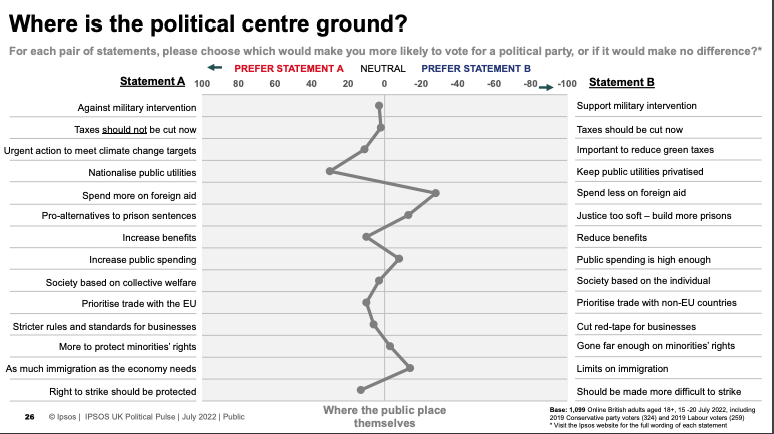Social Movement Digest #1
- James Ozden

- Aug 4, 2022
- 4 min read
Updated: Aug 5, 2022
We’re trying something new with this newsletter, which is a roundup of all the interesting social movement related content we’ve seen in the past month! Some of it isn’t brand-new, but still very much worth sharing in our opinion. If you enjoy it, feel free to forward to friends and they can also sign up on our newsletter. Feedback on this new format is also appreciated!
A quick update from Social Change Lab first - we’ve been working hard to compile our first 6-months of work on protest outcomes, and hope to have a full report ready in the next few weeks. Keep your eyes and inboxes peeled for that. Without ado -
Our top 3 recommendations:
Erica Chenoweth’s new research finds that targeting pillars of power that might defect is more important than protest size. Her Twitter thread does well to simplify her complex computational models and is definitely worth a read! In a nutshell, most movements fail to mobilise large numbers, but those who strategically target weak pillars of power seem to have the most success. As a reminder, her research is focused on autocracies, so this is very different to Western democracies!

Whatever happened to the UK Youth Climate Stikes? This is a question I’ve been wondering myself, and Novara media provides a helpful explanation. Some snippets: an absence of shared politics, difficulty in making horizontal (or consent-based) decisions under tension, cancel culture and inadequate long-term organisational plans.
Enough is Enough: This winter I refuse to pay my bills - Don’t Pay in the UK is gearing up for a large conditional commitment campaign to mobilise 1 million people in the UK to not pay their energy bills, as a form of economic noncooperation against rising energy prices.
Recent social movement research
In interviews with 19 national-level and 14 local level climate actors in the UK, Natasha Adams begins to map out the climate movement and offer some paths forward.
Netpol highlights how the police think about protests and activism in the UK, with some quite alarming findings. It turns out they classify ideologies that oppose the government (e.g. anarchism) in the same tier as genocide. Additionally, they classify groups that advocate for “changes to the economic system” as a moderate threat. You can also see my (James’) tweets on this
Decade of dissent: how protest is shaking the UK and why it’s likely to continue. A great database of thousands of protests in the UK over the past 10 years! As people who are taking a data-driven approach to studying social movements, this was a gem to find.

Whatever happened to the UK Youth Climate Strikes? To pull a key highlight from the article, George, one ex-UKSCN organiser sums up how he thinks they could have improved:
"George believes five changes could have put UKSCN on a different course. First, embracing an explicitly progressive politics from the outset, and inducting new members into it. Second, having a clear organisational structure based on voluntary hierarchy and democracy. Third, having a fairer and more straightforward system for raising and distributing funds. Fourth, developing a “tactical roster” or “escalation plan” for political action. Finally, forming two branches within the network – one concerned with “politicking and meeting MPs”, the other with “protests, direct action, civil disobedience and grassroots organisation”.
An opinion piece from Rupert Read who thinks there is an alternative to disruptive climate protest – a new moderate flank that seeks to mobilise a broad range of people to take part in less disruptive campaigns.
Fascinating polling on where the centre-ground of the UK public is, with some new polling by Ipsos Mori. See the full report with more charts (like the one below).

Ongoing campaigns
The tactical innovation of “The Tyre Extinguishers”, a new group focused on deflating the tyres of SUVs to highlight carbon emissions, air pollution and unsafe drivers, has now spread to the US.
School and university students will start occupying campuses to demand “the end of the fossil economy”. The youth-led group, aptly called End Fossil: Occupy, will be going from September to December 2022, with groups slowly popping up in the UK, Europe, South America and Africa.
Enough is Enough: This winter I refuse to pay my bills - Don’t Pay in the UK is gearing up for a large conditional commitment campaign to mobilise 1 million people in the UK to not pay their energy bills, as a form of economic noncooperation against rising energy prices.
Related social movement news
Police in the UK now have the powers (and have started) to crack down on protests for being too loud. Here is one example of a one-person protest who had their megaphone taken away for being too loud.
In an interesting turn of a business feeling threatened, MBR Acres, a facility that breeds beagle puppies for animal testing, tried to repress the solicitor of animal rights activists by accusing her of breaching a court injunction. The judge threw this out, calling it “totally without merit” and frivolous, and required the company to obtain permission of the court to bring any further contempt of court applications across “persons unknown”.
18 members of Congress were recently arrested during US pro-choice protests, which seems like a big step in civil disobedience becoming normalised when even elected representatives are taking part.
In Australia, the story of a civil servant who defected to civil disobedience after being tasked with promoting fossil fuel development in Africa.
What did you think of this social movement digest format?
Loved it - do this monthly
It was interesting
It was okay
Didn't enjoy it
That's all for this time! Any feedback, feel free to email me at james@socialchangelab.org




Comments